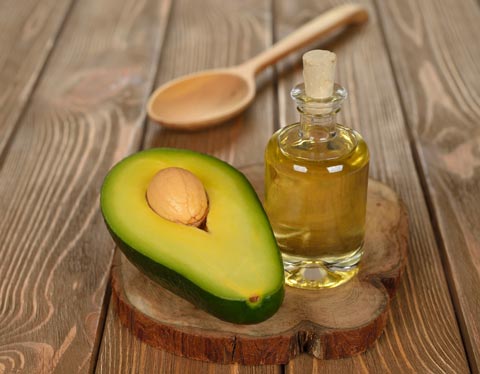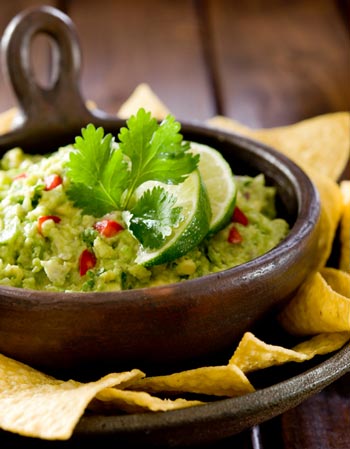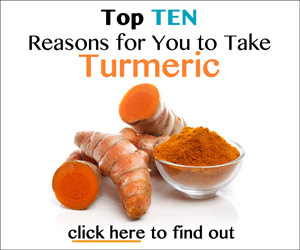Are Avocados and Avocado Oil Good For You?

Did You Know?
What we call "vegetables" for cooking purposes are really just the edible parts of plants not related to the seed: leaves, stalks, roots, and tubers. Fruits are the edible plant parts that develop from flowers, and also include "dry" fruits (cereal grains, peas, nuts, and beans).(ii.208)
Although avocados are most often used as vegetables in the kitchen, they are actually a fruit. In fact, avocados are true berries: they have thin skins when ripe that protect and nourish the seed. Avocados generally have no known toxic effects, and both avocado pulp and avocado oil appear to protect healthy cells against DNA damage — including damage caused by chemotherapy drugs. Extracts from avocado pits also appear to be safe.(ii.208-211)
Whole avocado extract has shown anticancer effects against a number of different cancer cell lines. These include:
- Breast cancer(ii.212)
- Colon cancer(ii.212, 213)
- Leukemia(ii.214)
- Liver cancer(ii.212)
- Lung cancer(ii.212)
- Oral cancer(ii.215)
- Prostate cancer (both androgen-dependent and androgen-independent types of prostate cancer)(ii.216)
- Throat cancer(ii.213)
One of the ways avocado may work against cancer is by blocking nitric oxide free radicals. These free radicals create inflammation and promote the development of cancer. Avocado also inhibits Helicobacter pylori, bacteria that causes gastritis and stomach ulcers. Both of the conditions are linked to gastric cancer.(ii.217, 218)
Anticancer Compounds in Avocados and Avocado Oil
Similar to its spicy relatives in the same tropical plant family (cinnamon, sweet bay, and sassafras), avocado contains many antioxidants and beneficial plant compounds. Avocado is especially high in lutein and zeaxanthin. It is also one of the rare fruits high in polyunsaturated fats.(ii.208, 216, 219, 220)
Research suggests that a number of avocado compounds may help prevent or treat various types of cancer:
| Avocado Compound | Cancers It May Prevent or Treat |
|---|---|
| Abscisic acid(ii.221) | |
| Aliphatic acetogenins (alkanols)(ii.226) |
|
| Avocatin B(ii.227) |
|
| Alpha-carotene(ii.216) | |
| Beta carotene(ii.216) | |
| Beta-cryptoxanthin(ii.208) | |
| Beta-sitosterol(ii.208) | |
| Caffeic acid(ii.208) | |
| Chlorogenic acid(ii.208) | |
| Ellagic acid(ii.248) | |
| Ferulic acid(ii.208) | |
|
Folacin(ii.208) (also known as folic acid, folate, and vitamin B9)(ii.266) |
Folic acid naturally found in food is linked to lower levels of cancer. However, folic acid supplements have been linked to a higher risk of cancer, especially prostate cancer.(ii.267) |
| Gallic acid(ii.208) |
|
| Glutathione(ii.208) |
Glutathione may also help reduce the toxic side effects on nerves from platinum-based chemotherapy.(ii.286) |
| Lutein(ii.216) |
Lutein may also protect kidneys against the toxic effects of cisplatin, a potent chemotherapy drug.(ii.289) |
| Neoxanthin(ii.290) | |
| Rutin(ii.248) |
Rutin may also help protect the brain against neuron damage, memory loss, as well as liver and kidney damage, caused by chemotherapy drugs.(ii.300-302) |
| Para-coumaric acid(ii.208) |
P-coumaric acid may also protect the heart, liver, and kidneys against damage caused by chemotherapy drugs.(ii.306, 307) |
| Persenone A(ii.218) | |
| Quercetin(ii.248) |
Quercetin may also help protect the liver caused by the chemotherapy drug oxaliplatin.(ii.302) |
| Stigmasterol(ii.248) | |
| Violaxanthin(ii.290) |
|
| Vitamin B6(ii.208) | |
| Vitamin E(ii.216) | |
| Zeaxanthin(ii.216) |
Other Avocado Health Benefits
Traditional medicines (such as Ayurveda) have long used different parts of the avocado plant to treat a number of ailments — including bronchitis, hypertension, diabetes, diarrhea, and stomach aches. Modern research (including some clinical trials) corroborates that avocado fruit, avocado extract, avocado seed, avocado oil, avocado peel, and even avocado leaves may offer various health benefits.(ii.334-337)
Avocados and avocado oil may help prevent or treat the following diseases and conditions:
- Alzheimer's disease and other dementia(ii.338-340)
- Cardiovascular disease(ii.341)
- Diabetic encephalopathy(ii.338)
- Diabetic nephropathy (kidney disease)(ii.342)
- Fatty liver disease(ii.343)
- Fungal infections(ii.344)
- Gastritis(ii.217)
- Insulin resistance(ii.345)
- Kidney disease(ii.341)
- Memory loss(ii.340)
- Metabolic syndrome(ii.346)
- MRSA(ii.347)
- Non-alcoholic fatty liver disease(ii.220)
- Obesity(ii.348)
- Psoriasis(ii.349)
- Skin wounds(ii.350)
- Stomach ulcers(ii.217)
- Thyroid disease(ii.343)
- Unhealthy cholesterol levels(ii.351, 352)
Clinical trials suggest avocado soybean supplements may help reduce the painful symptoms of and help treat osteoarthritis.(ii.353, 354)

How to Select and Use Avocado and Avocado Oil
Hass variety of avocados are heavily produced and exported from the Central American country of Mexico. They are also grown in Southern California.(ii.290, 355)
Avocados produce edible oil from the flesh around the pit. Cold-pressed avocado oil can be used in salads, cooking, and frying. New studies suggest that creole varieties of avocado from Mexico may actually produce superior avocado oil.(ii.219, 355)
Avocados are harvested throughout the year. However, avocados picked later in the year (e.g., between July and September) contain the highest levels of cancer-fighting carotenoids and vitamin E. The darker green avocado meat next to the skin contains the most carotenoid content.(ii.290)
Try using avocado oil to cold veggie dishes and condiments, such as salads and salsa. Avocado oil boosts the absorption of beneficial compounds from fruits and vegetables — including beta-carotene, lutein, and lycopene.(ii.356)
Fresh avocado also enhances absorption of alpha-carotene and beta carotene. Further, eating fresh avocado with a meal containing carotenoids helps convert them to vitamin A, important for a strong immune system and eyesight.(ii.357)
Safety Note
In one lab study, researchers showed that avocado fruit and leaf extracts caused significant DNA damage to human cells. The concentrations used ranged from 100 mg/kg to 300 mg/kg, with even the lowest concentration causing a lot of cell damage. If these effects seen in the lab are the same in the body, the results suggest that supplements made from avocado extracts could be dangerous if taken in large amounts.(ii.358)
In a person weighing 150 lbs, 100 mg/kg of extract equals 33,000 mg:

This amount is equivalent to over 1 ounce of extract.
Although these results sound alarming, other researchers point out that the toxic effects noted in these lab studies have not been demonstrated in vivo (animal) studies. Results from other lab research using 100-200 mg/kg concentrations of avocado fruit found the opposite of the study showing DNA damage. In fact, avocado extract protected the cells against damage caused by the chemotherapy drug cyclophosphamide. This second lab study also used methanol to make the avocado extract and tested it against the same type of human cells.(ii.209-211)



